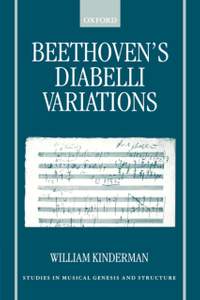Interview,
Ivan Ilić on L’art de varier
 The Serbian-American pianist Ivan Ilić embarked on his ambitious project to record the complete piano music of the Prague-born composer Antoine Reicha back in 2017, and the first two instalments were greeted with widespread acclaim – International Piano described him as ‘wonderfully attuned to the style and content of the music’, whilst The Arts Desk observed that ‘the dominant impression is of a pianist keen to share this extraordinary music with a wider public’.
The Serbian-American pianist Ivan Ilić embarked on his ambitious project to record the complete piano music of the Prague-born composer Antoine Reicha back in 2017, and the first two instalments were greeted with widespread acclaim – International Piano described him as ‘wonderfully attuned to the style and content of the music’, whilst The Arts Desk observed that ‘the dominant impression is of a pianist keen to share this extraordinary music with a wider public’.
The third volume of the series contains a single, extraordinary work: L’art de varier, a set of 57 variations which Reicha composed in 1802/3 whilst living in Vienna, where his teachers included Salieri and Michael Haydn. I spoke to Ivan last week about the breadth of Reicha’s invention in the cycle, his rivalry with his childhood friend (and fellow Breitkopf composer) Beethoven, and the parallels between L’art de varier and the Diabelli Variations from two decades later.
Photo credit: Florent Larronde
Is the cycle based on an original theme?
Yes, and it’s quite geometric: it’s not particularly memorable or the sort of thing you might whistle, it’s more like the theme of a fugue. Reicha was obsessed with the fugue for most of his life, and I think that like many people he tried to overcompensate for something he regarded as a deficiency - everyone took rigorous counterpoint lessons at that time, and I sense that he wanted to prove he could write something that was contrapuntally irreproachable. One interesting thing about this work is that the theme is like that but the variations are not: the theme itself is perfectly conceived in order to allow him to digress in all kinds of different directions. And that kind of digression is very much a trait of the younger Reicha, up to when he was about 35; once he settled in Paris later on all his work became structurally perfect. People who liked perfect-sounding music (for instance the shine and polish you get in Haydn symphonies and Mozart string quartets) tended to prefer that later music over his earlier works.
Which variations strike you as most innovative?
One of the longest, later variations involves a lot of hand-crossing, and it all becomes really sensual and romantic - more akin to something like Debussy than early nineteenth-century music. And that poses a tricky problem for the performer: does that mean that I should play it like I would play Debussy and use lots of pedal, or am I supposed to pretend I’ve never heard Debussy because Reicha hadn’t? I’ve read a lot of Richard Taruskin, who talks about how the early music movement is kind of a sham in that it’s a modern creation of what we think the music sounded like, when the reality is that we’ll never actually know! If we aren’t going to buy into the mindset of ‘Reicha never played on a Steinway from 2010, so his music shouldn’t be played on a modern piano’ then similarly we can’t undo the fact that we’ve heard Satie, Debussy, Korngold or Stravinsky: it’s in our ears forever, and therefore if something reminds us of that then we have to take it in that direction.
Did Reicha’s cycle have much direct influence on later generations of composers?
It’s hard to say for sure, but certainly the scores were floating around Europe: Reicha was published by Breitkopf, one of the most important publishers around, and they were made available in various countries. He was also a very well-known pedagogue: his treatises on harmony and composition were widely translated by people including Czerny, who translated them into German from the original French.
And what about Reicha’s contemporary, Beethoven: do you feel the shadow of L’art de varier in his Diabelli Variations?
Absolutely. I think it’s probably impossible that he wasn’t influenced by them - not because he wanted to do the same thing, but simply because no other composer of his generation had written a set of variations on this scale. The Diabellis came a little later, of course, but it’s surely significant that Beethoven wrote two sets of piano variations around the same time as Reicha’s: the Eroica Variations and the F major variations, both from 1802. The musicologist John A. Rice has argued that Beethoven basically stole a sequence of developments from Reicha’s Symphony in E flat for the slow movement of his Eroica Symphony, and executed it much more successfully. Of course composers are always absorbing things unconsciously and I’m sceptical that Beethoven deliberately lifted it, but the arc of the middle section and the way it develops is very similar.
What is certain, though, is that Beethoven and Reicha were very aware of each other’s scores and studied them carefully: they grew up together in Bonn and became two of the most ambitious young composers of their generation. They were both interested in counterpoint, the music of the future, revolution, and Napoleon - but ultimately they probably had too much in common to remain friends. There was a fair amount of jealousy: in 1802 Beethoven wrote a letter to their mutual editor Breitkopf disparaging a certain ‘Gallic’ composer (very clearly Reicha) who’s writing fugues according to a ‘new method’ which actually aren’t fugues at all, and later on Berlioz writes that sometimes Reicha would struggle to hide his jealousy at the reception of Beethoven’s works.
I don’t want to draw too many parallels of my own with the Diabellis, because I think playing detective is part of the fun for the listener. But something which occurred to me just before you called was that the first variation of Reicha’s piece is very close to the theme, and the next one is a real slap in the face - lots of repeated notes and big chords. And something similar occurs in the Diabelli Variations: the theme is followed by a loud, march-like variation which is one of the most memorable ones.
I read a book by the wonderful Beethoven scholar William Kinderman who talks about the fact that we only recently found out that Beethoven wrote the Diabelli Variations in two sittings: he composed the first batch in about 1819, then went back a few years later and added ten more (including that march variation I mentioned earlier). It’s as if he knew that the variations he wrote before 1820 were a little bit too technical: they were very close to the theme and there wasn’t really much which distinguished the piece from his earlier sets of variations. But the variations that were written with three or four years of hindsight go much, much further and have a big impact on the structure of the piece. With Reicha we don’t have manuscripts, so we don’t know what order he wrote the variations in, or even whether he cared much about the progression of the cycle – as you can tell it’s a real grab-bag of styles, so did he sit down and plot everything? It’s hard to say.
How would you programme L’art de varier in recital?
There are lots of options, but for the concerts scheduled before lockdown I was planning on playing this and nothing else - playing all the variations and with all the repeats is almost too long for a concert anyway, so I’ve been wondering if there’s an intelligent way to leave out some repeats. If I was insane I would do this and the Diabellis, but that would be quite a marathon for the audience – even more so than for me! I’ve also been thinking about the 80-odd variations which Diabelli commissioned and published from composers including Czerny, Franz Xaver Mozart, Schubert, and the young Liszt: it might be interesting to play Diabelli’s theme and then maybe ten of the most weird and wonderful variations by other composers!
Was the piece’s dedicatee, Prince Louis Ferdinand of Prussia, an accomplished enough pianist to play the cycle himself?
He was by all accounts an excellent musician and was certainly very comfortable at the piano; I have a wonderful fugue of his which I was thinking about slotting onto this CD if there was room, but obviously in the end there was barely space for this one work! I think it’s one of those situations where the composer was offering up a kind of musical monument to a patron, but not necessarily with the expectation that the patron would actually play it. Perhaps the idea was that he could simply dip into it rather than playing the lot, as it’s almost like an encyclopaedia of styles: in fact when I was first toying with the idea of learning it I’d read through one or two variations after my daily practice, and there’s no reason why listeners shouldn’t do that as well.
How did your Reicha odyssey begin?
It all started with a piece from around the same time as the Variations, which was a really creative period for him, and that was the Op. 36 fugues which Beethoven got so irate about. (There are 36 fugues, just as there are 57 variations in Op. 57 – he liked to do that kind of thing, and it gets slightly annoying!). They’re reasonably known among geeky piano people – historians and pianophiles rather than pianists, really - and we had a wonderful college library full of things like this, so I dug them out and was shocked at their originality. At the time I was in my twenties and didn’t have the strength of personality to say ‘I’m going to focus on this music no-one’s ever heard of’ when everyone else in the practice-rooms was playing Beethoven sonatas and Chopin études!
So I forgot about them for years, but after spending a long time working on Morton Feldman’s music I was looking for something which was the opposite in every way: I’d really immersed myself in that world and needed a break! I had an important concert coming up and needed something to programme alongside Beethoven and Schumann; I was initially thinking Haydn, but I pulled out this score and as soon as I started working on it I thought 'This is exactly what I need’. Then I found out that Reicha had written about twelve more hours of piano music which basically no-one was playing, and I realised that those fugues weren’t a fluke – if they had been then I don’t think I would have made such a project of it. I think that’s pretty rare: I know of lots of unknown repertoire where a composer who’s not so popular today wrote one masterpiece and nothing else quite on the same plane, but Reicha writes at such a consistently high level of craftsmanship. It’s the kind of music that musicians feel is rewarding to persevere with: so often with unknown repertoire you feel like you’ve found everything there is to know after the first month, but with Reicha it’s a process of constant discovery.
Are there more Reicha recordings on the cards?
We were supposed to record the piano concerto (he only composed one) last June, and we’re still hoping to perform it in April: we’ve booked the Ulster Orchestra and their new conductor Daniele Rustioni, and the plan is to do two Reicha symphonies with it. Obviously there’s a lot more solo piano music to record, but I’ve recently come across another pretty unknown composer whom I want to explore…All I’ll say at this stage is that he’s early twentieth-century and from a small country, and I think that if he had come from one of the bigger European countries he would be considered in the top tier of composers of his generation. He composed four or five hours of piano music and it’s just gorgeous!
I do find it heartening that we’re revising our opinions of composers who were written off as ‘second-rate’ these days – I’m thinking of people like Mompou, Korngold and Sibelius, all of whom were dismissed until fairly recently. Even when I was at school that was reflected in text-books: people like Brian Ferneyhough were regarded as the giants of the age and even Ligeti was regarded as almost too accessible! We’re so far away from that hardcore modernist perspective today that it doesn’t even seem absurd any more, it just seems funny. But I’m really glad that people are realising that there’s no reason we can’t look at certain composers’ music afresh.
Ivan Ilić (piano)
Available Formats: CD, MP3, FLAC, Hi-Res FLAC
Ivan Ilić (piano)
Available Formats: CD, MP3, FLAC, Hi-Res FLAC
Ivan Ilić (piano)
Available Formats: CD, MP3, FLAC, Hi-Res FLAC






